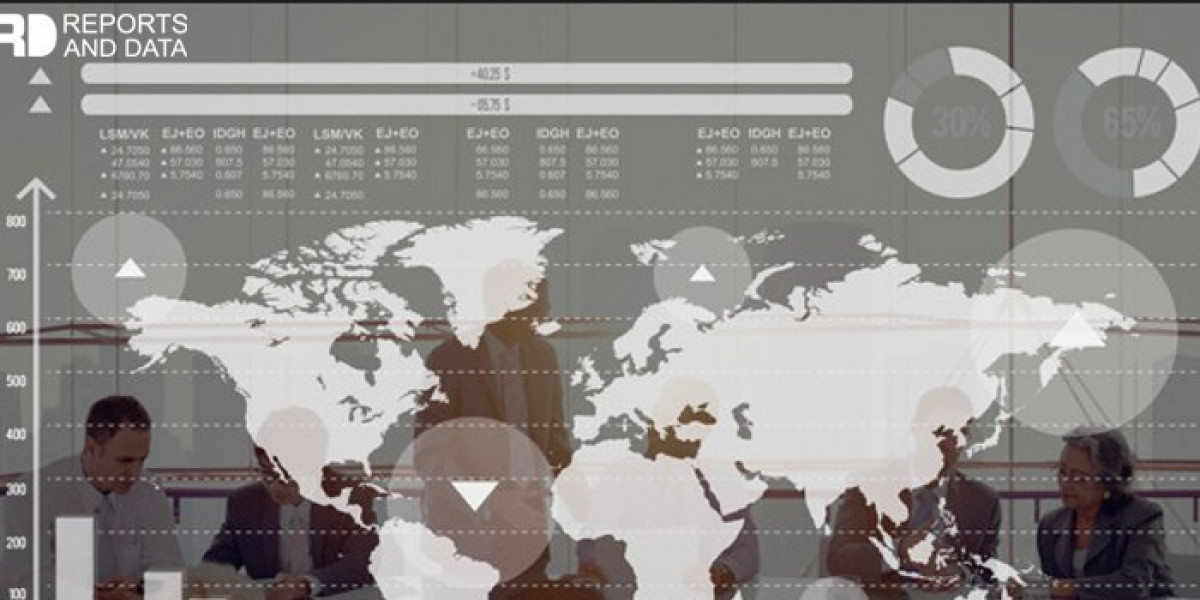The global Digital Patient Monitoring Devices Market reached a value of USD 40.06 Billion in 2022, with an expected rapid revenue Compound Annual Growth Rate (CAGR) of 17% throughout the forecast period.
The main drivers of market revenue growth are the increasing prevalence of chronic diseases and the growing need for Remote Patient Monitoring, facilitated by the adoption of wearable health monitoring devices. These digital patient monitoring devices have gained popularity as they enable healthcare professionals to remotely monitor patients, thereby reducing the risk of infection spread.
The demand for digital patient monitoring systems is on the rise, primarily due to the escalating incidence of chronic diseases such as Diabetes, hypertension, and Cardiovascular Disorders. For instance, the World Health Organization (WHO) reported a significant increase in the number of diabetics, from 108 million in 1980 to 422 million in 2014. The surge in chronic diseases has further fueled the demand for Remote Patient Monitoring, which empowers healthcare professionals to continually monitor patients' health status and promptly address any issues to prevent adverse consequences.
Get a sample of the report @ https://www.reportsanddata.com/download-free-sample/6233
Competitive Landscape:
Major players in the global digital patient monitoring devices market include:
- Abbott Laboratories
- Boston Scientific Corporation
- General Electric Company
- Honeywell International Inc.
- Medtronic plc
- Nihon Kohden Corporation
- Philips Healthcare
- Schiller AG
- Siemens Healthcare GmbH
- Spacelabs Healthcare
To know more about the report @ https://www.reportsanddata.com/report-detail/digital-patient-monitoring-devices-market
Driving Factors of the Digital Patient Monitoring Devices Market:
- Rising Prevalence of Chronic Diseases: The increasing incidence of chronic diseases such as diabetes, cardiovascular disorders, hypertension, and respiratory conditions is a major driver for the digital patient monitoring devices market. These devices help in continuous monitoring and management of patients' health conditions, leading to better disease management and improved patient outcomes.
- Technological Advancements: Advancements in technology, including wearable health monitoring devices, remote patient monitoring systems, and Internet of Things (IoT) integration, have significantly enhanced the capabilities of digital patient monitoring devices. These innovations have improved patient convenience, ease of use, and data accessibility for healthcare professionals.
- Growing Aging Population: The global aging population is contributing to the higher demand for digital patient monitoring devices. As elderly individuals are more prone to chronic diseases and require continuous monitoring, these devices play a crucial role in providing timely healthcare interventions and reducing hospitalization rates.
- Increasing Need for Remote Patient Monitoring (RPM): The shift towards value-based and patient-centered care has driven the adoption of RPM solutions. Digital patient monitoring devices allow healthcare providers to remotely track patients' health conditions, reducing the need for frequent hospital visits and enabling early detection of health issues.
Restraining Factors of the Digital Patient Monitoring Devices Market:
- Data Security and Privacy Concerns: The widespread use of digital patient monitoring devices raises concerns about the security and privacy of patients' sensitive health data. Ensuring data protection and compliance with regulations can be a challenge for manufacturers and healthcare providers.
- Limited Reimbursement Policies: In some regions, reimbursement policies for digital patient monitoring devices may be limited or unclear, hindering their broader adoption. The lack of proper reimbursement mechanisms can impact market growth and accessibility for patients.
- Technical Challenges and Interoperability Issues: Integrating digital patient monitoring devices with existing healthcare systems and ensuring seamless data sharing can be technically challenging. Interoperability issues between different devices and platforms may slow down their adoption.
- Resistance to Technology Adoption: Some healthcare professionals and patients may exhibit resistance to adopting new digital technologies due to a lack of familiarity, concerns about accuracy, or perceived complexities.
Request a customization of the report @ https://www.reportsanddata.com/request-customization-form/6233
About Us:
Reports and Data is a market research and consulting company that provides syndicated research reports, customized research reports, and consulting services. Our solutions purely focus on your purpose to locate, target and analyze consumer behavior shifts across demographics, across industries and help client’s make a smarter business decision. We offer market intelligence studies ensuring relevant and fact-based research across a multiple industries including Healthcare, Technology, Chemicals, Power and Energy. We consistently update our research offerings to ensure our clients are aware about the latest trends existent in the market.
Contact Us:
John W
(Head of Business Development)
Reports and Data | Web: www.reportsanddata.com
Direct Line: +1-212-710-1370a
E-mail: sales@reportsanddata.com
Blogs | Press Release | Industry News | Our competencies
Browse More Upcoming Reports @ https://www.reportsanddata.com/upcoming-reports
Browse More Latest Reports @ https://www.reportsanddata.com/report
Browse More Reports:
Peripheral Neuropathy Treatment Market








